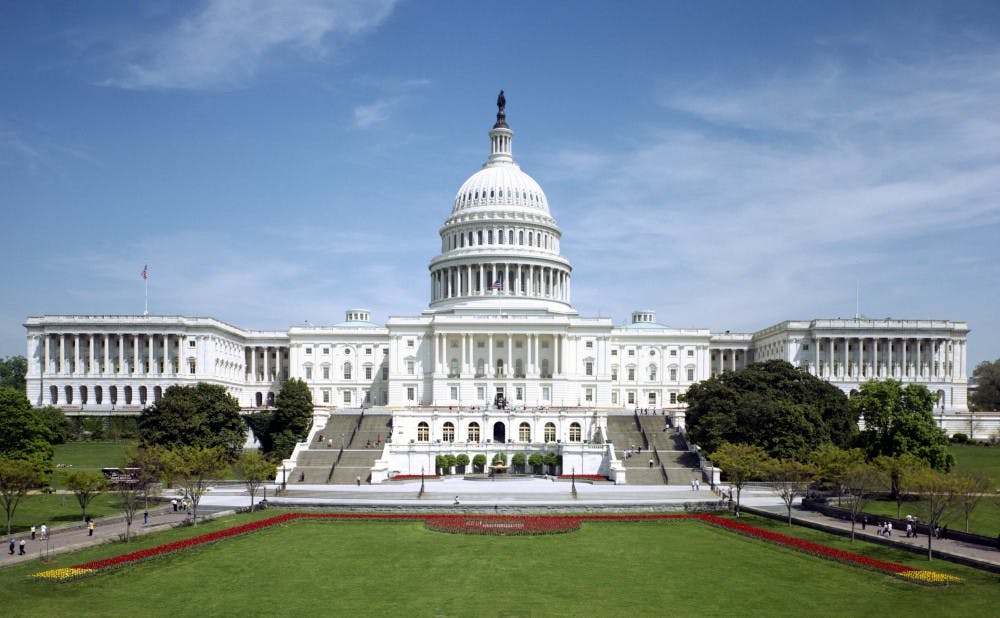The U.S. Department of Education once threatened to withhold funding from the Duke-UNC Consortium for Middle East Studies, and now House Democrats are questioning the Department’s motives.
Rep. Andy Levin, D-Mich., and Rep. Susan Davis, D-Calif., wrote in a Nov. 1 letter to the Education Department that the Department crafted “novel program requirements” customized to punish the CMES and has made an unprecedented attempt to target the Consortium. The House Democrats have thus become concerned that the Department’s letter to the Consortium published in the Federal Register could “chill academic freedom.”
“In order to mitigate these concerns, the Department should only apply guidelines it has clearly outlined and employ a transparent and methodical review process,” Levin and Davis wrote. “We are concerned that the Department's review has not followed this ethos.”
Levin is vice chair of the U.S. House of Representatives Education and Labor Committee, and Davis is chair of the Subcommittee on Higher Education and Workforce Investment.
One of the Department’s critiques of the CMES is that it has “considerable emphasis” on the “positive aspects of Islam” and thus needs to amplify its offerings pertaining to other religions practiced in the Middle East. This request for a curriculum “balance” is a new requirement for Title VI funding, Levin and Davis wrote.
“The Title VI statute only requires curricula to offer ‘diverse perspectives and a wide range of views and generate debate,’ and not, as the Department writes in its response letter to the Middle East Studies Association (MESA Letter), ‘balanced perspectives,’” they wrote.
The House Democrats have requested the Education Department to respond to its questions by Nov. 15. Their inquiries range from obtaining the CMES’ grant applications, showing evidence of the “Department's standard review procedures for [National Resource Center] grants” and why the Department actually funded the CMES for this academic year.
Angela Marubito, press secretary for the Education Department, confirmed in a Nov. 7 email to The Chronicle that the Department received the House committee’s letter and is reviewing it.
“As always, we will faithfully comply with all lawful oversight activities,” Marubito wrote.
She added that the Department is still reviewing and responding to the Consortium’s September letter. However, the Department has since written responses to the ACLU and Middle East Studies Association of North America’s respective letters that questioned the Department’s motives in filing an inquiry against the Consortium.
Levin and Davis argue that in those two letters the Department views area studies courses pertaining to Islam as “religious or political propaganda,” as the Education Department “alarmingly” suggested that the Consortium used federal funding as “‘a financing vehicle for political, religious, or ideological advocacy, elevating certain religious or ideological points of view over another.’”
The MESA views this as evidence of continued “unsubstantiated criticisms of the Consortium's Title VI programs,” according to Executive Director of MESA Jeffrey Reger, and such concerns were already answered in the Consortium’s September letter.
However, Reger noted that the Department’s response to the MESA seemed to be retracting from its previously limited scope of Title VI.
“We were pleased to see that the Department appears to be walking back its overly narrow interpretation of activities to be funded by Title VI, especially by recognizing that the teaching of language entails the acquisition of cultural competencies that can only be gained through exposure to a broad range of disciplines and activities, which should include film, literature, cultural studies, and history,” Reger wrote.
Get The Chronicle straight to your inbox
Signup for our weekly newsletter. Cancel at any time.

Stefanie Pousoulides is The Chronicle's Investigations Editor. A senior from Akron, Ohio, Stefanie is double majoring in political science and international comparative studies and serves as a Senior Editor of The Muse Magazine, Duke's feminist magazine. She is also a former co-Editor-in-Chief of The Muse Magazine and a former reporting intern at PolitiFact in Washington, D.C.

